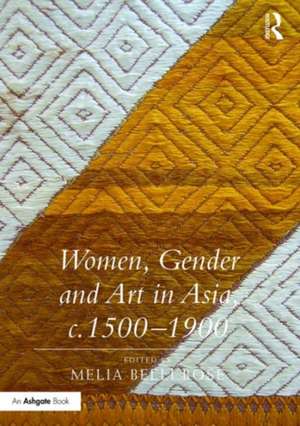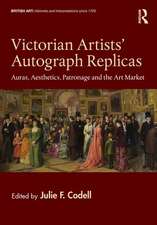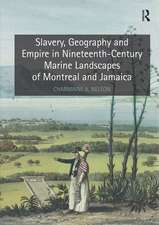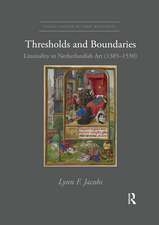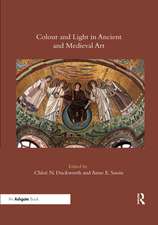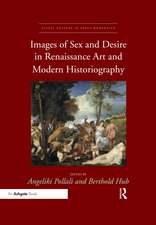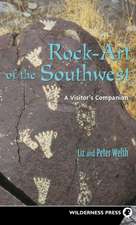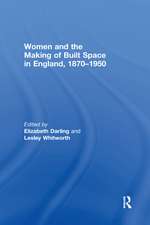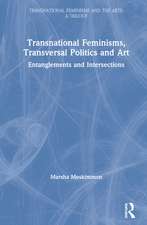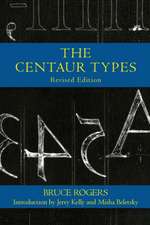Women, Gender and Art in Asia, c. 1500-1900
Editat de Melia Belli Boseen Limba Engleză Hardback – 11 iul 2016
The chapters deal with historic individuals about whom there is considerable biographical information. Beyond locating these uncommon women within their socio-cultural milieux, contributors consider the multiple strands that twined to comprise their complex identities, and how these impacted their works of art. In many cases, the woman's status-as wife, mother, widow, ruler, or concubine (and multiple combinations thereof), as well as her religion and lineage-determined the media, style, and content of her art. Women, Gender and Art in Asia, c. 1500–1900 adds to our understanding of works of art, their meanings, and functions.
| Toate formatele și edițiile | Preț | Express |
|---|---|---|
| Paperback (1) | 305.32 lei 6-8 săpt. | |
| Taylor & Francis – 14 aug 2018 | 305.32 lei 6-8 săpt. | |
| Hardback (1) | 831.32 lei 6-8 săpt. | |
| Taylor & Francis – 11 iul 2016 | 831.32 lei 6-8 săpt. |
Preț: 831.32 lei
Preț vechi: 1109.47 lei
-25% Nou
Puncte Express: 1247
Preț estimativ în valută:
159.08€ • 166.30$ • 134.43£
159.08€ • 166.30$ • 134.43£
Carte tipărită la comandă
Livrare economică 06-20 martie
Preluare comenzi: 021 569.72.76
Specificații
ISBN-13: 9781472464262
ISBN-10: 1472464265
Pagini: 394
Dimensiuni: 174 x 246 x 25 mm
Greutate: 1.09 kg
Ediția:1
Editura: Taylor & Francis
Colecția Routledge
Locul publicării:Oxford, United Kingdom
ISBN-10: 1472464265
Pagini: 394
Dimensiuni: 174 x 246 x 25 mm
Greutate: 1.09 kg
Ediția:1
Editura: Taylor & Francis
Colecția Routledge
Locul publicării:Oxford, United Kingdom
Cuprins
Contents
List of Illustrations
Notes on Contributors
Acknowledgements
Introduction: Queens, Courtesans, and Collectors: Women’s Engagement with Art in Asia
Melia Belli Bose
PART 1
Matrons, Art, and Power
1 Mapping Holkar Identity and the Good Name of Ahilyabai
Cathleen Cummings
2 Royal Matronage and a Visual Vocabulary of Indian Queenship: Ahilyabai Holkar’s Memorial Commissions
Melia Belli Bose
3 Heavenly Mistress and Bodhisattva: Visualizing the Divine Identities of Two Empresses in Ming China (1368–1644)
Luk Yu-Ping
4 A Very “Modern” Matron: Phra Rachaya Dara Rasami as Promoter and Preserver of Lan Na Culture in Early Twentieth-century Siam
Leslie Woodhouse
PART II
Women’s Work and Working Women
5 Imagining Du Liniang in The Peony Pavilion: Female Painters, Self-portraiture, and Paintings of Beautiful Women in Late Ming China
Lara C.W. Blanchard
6 Creating Art in Japan’s Imperial Buddhist Convents: Devotional Practice and Cultural Pastime
Patricia Fister
7 Women’s Work: Phulkari, Flora Annie Steel, and Collecting Textiles in British India
Cristin McKnight Sethi
PART III
Depicting the Exemplary Woman
8. Defining a Woman: The Painting of Sin Saimdang
Sunglim Kim
9 Properly Female: Illustrated Books of Morals for Women in Edo Japan
Elizabeth Lillehoj
10 Absence and Presence: Representations of Human and Non-human Females in Tibetan Thangkas
Serinity Young
PART IV
Gender in Liminal Spaces
11 Reconsidering Gender Realms: The Garden as Site and Setting in Late Imperial Shanghai
Kristen Chiem
12 Women Who Crossed the Cordon
Ikumi Kaminishi
13 A Multi-gendered Scandal: The Survival of the Prostitute Meme, Asazuma Boat
Miriam Wittles
Index
List of Illustrations
Notes on Contributors
Acknowledgements
Introduction: Queens, Courtesans, and Collectors: Women’s Engagement with Art in Asia
Melia Belli Bose
PART 1
Matrons, Art, and Power
1 Mapping Holkar Identity and the Good Name of Ahilyabai
Cathleen Cummings
2 Royal Matronage and a Visual Vocabulary of Indian Queenship: Ahilyabai Holkar’s Memorial Commissions
Melia Belli Bose
3 Heavenly Mistress and Bodhisattva: Visualizing the Divine Identities of Two Empresses in Ming China (1368–1644)
Luk Yu-Ping
4 A Very “Modern” Matron: Phra Rachaya Dara Rasami as Promoter and Preserver of Lan Na Culture in Early Twentieth-century Siam
Leslie Woodhouse
PART II
Women’s Work and Working Women
5 Imagining Du Liniang in The Peony Pavilion: Female Painters, Self-portraiture, and Paintings of Beautiful Women in Late Ming China
Lara C.W. Blanchard
6 Creating Art in Japan’s Imperial Buddhist Convents: Devotional Practice and Cultural Pastime
Patricia Fister
7 Women’s Work: Phulkari, Flora Annie Steel, and Collecting Textiles in British India
Cristin McKnight Sethi
PART III
Depicting the Exemplary Woman
8. Defining a Woman: The Painting of Sin Saimdang
Sunglim Kim
9 Properly Female: Illustrated Books of Morals for Women in Edo Japan
Elizabeth Lillehoj
10 Absence and Presence: Representations of Human and Non-human Females in Tibetan Thangkas
Serinity Young
PART IV
Gender in Liminal Spaces
11 Reconsidering Gender Realms: The Garden as Site and Setting in Late Imperial Shanghai
Kristen Chiem
12 Women Who Crossed the Cordon
Ikumi Kaminishi
13 A Multi-gendered Scandal: The Survival of the Prostitute Meme, Asazuma Boat
Miriam Wittles
Index
Notă biografică
Melia Belli Bose is Assistant Professor of Asian Art History at the University of Texas at Arlington, USA.
Recenzii
"...A rich volume, packed with original analyses, often of artists or artworks that have not received much (or any) attention to date. It is also the first edited volume to look at the question of gender in Asian art as a whole. This volume will make an important contribution to the fields of gender studies as well as Asian art." Deborah Hutton, The College of New Jersey, USA
Descriere
Adding to our understanding of works of art, their meanings, and functions, this essay collection looks at examples of women as artists, commissioners, collectors, and subjects from across Asia. Contributions are concerned with such questions as: How unusual was it for women to engage directly with art? What factors precluded more women from doing so? In what ways did women's artwork or commissions differ from those of men? And, what were the range of meanings for woman as subject matter?
